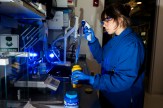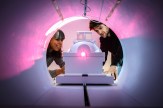New owners brace for post-pandemic pet withdrawal
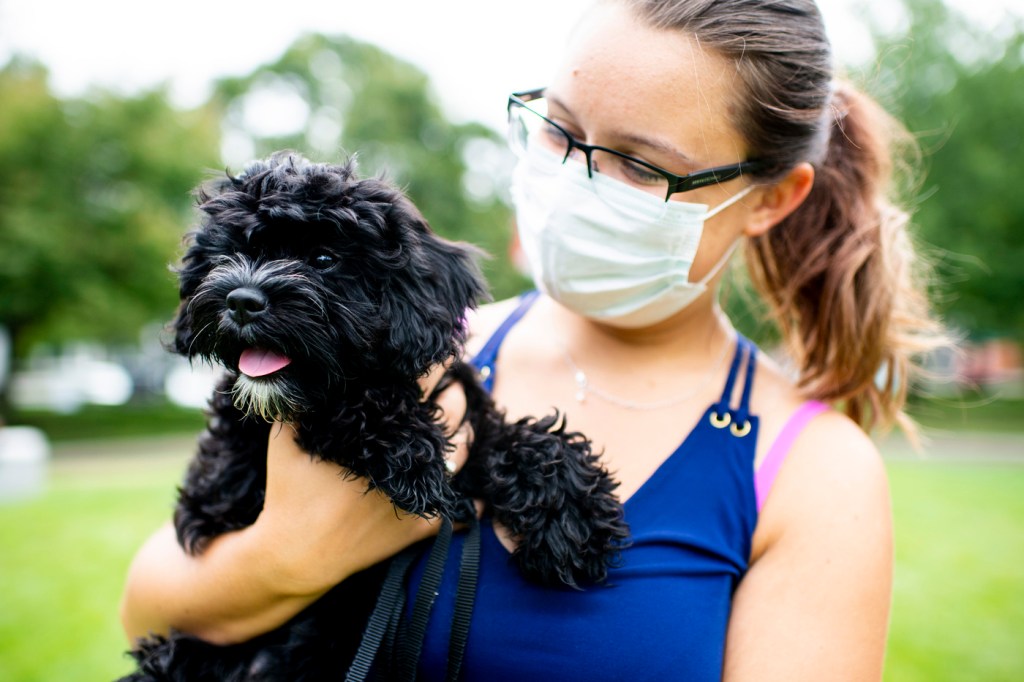
Quillon Simpson, a postdoctoral research associate at Northeastern, spotted the tiny black-and-white border collie pup from clear across the country via video during the pandemic last August and instantly knew she was the pooch for him.
While her litter mates gathered around a wide food bowl to eat breakfast, the three-week old whelp that Simpson would eventually name Luna was inside the bowl, happily rolling around in puppy chow.
“Luna was smack-bang in the middle on her back, rolling around in this big bowl of food and loving life. Each time she rolled she’d take a bit of food. We were like, ‘That is the dog for us,’” says Simpson.
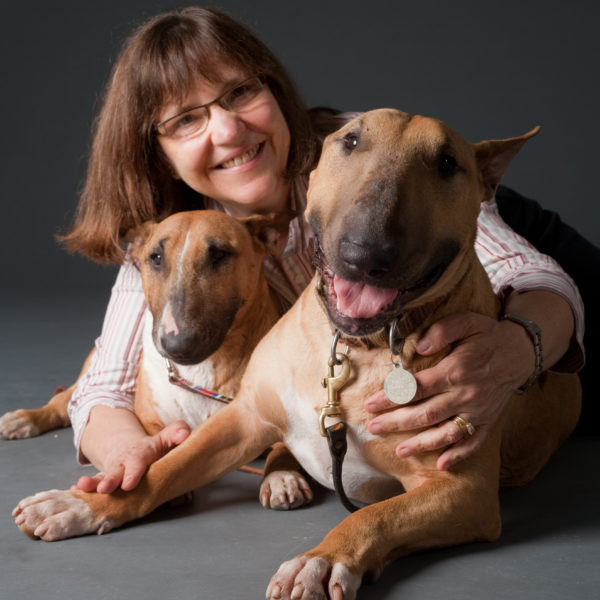
Terri Bright, part-time psychology lecturer and animal behaviorist, heads the behavior services department at the MSPCA-Angell Animal Medical Center. Courtesy photo.
Like many people who decided to get a furry friend during the COVID-19 pandemic, Simpson and his partner decided that the stay-at-home mandate provided a perfect opportunity to get a puppy because they’d both be on hand to dote on the dog.
But Terry Bright, an animal behaviorist and part-time psychology lecturer at Northeastern, says raising a puppy while the entire family is homebound can be a double-edged sword, especially as families start to return to the classroom or workplace.
“So much of puppy behavior is what I call ‘made you look,’ behavior. You know, the puppy tugs on your clothes, made you look. The puppy barks when you’re on a Zoom call, made you look,” says Bright, who also is the director of behavior services at Boston’s MSPCA-Angell Animal Medical Center.
“If you have two kids, two parents, and everybody’s home, the opportunity for reinforcement of that unwanted behavior is huge. And the effect of reinforcement on that behavior is that it causes that behavior to increase,” says Bright, who pointed out that the number of puppies seen at the MSPCA clinic has doubled in the last year.
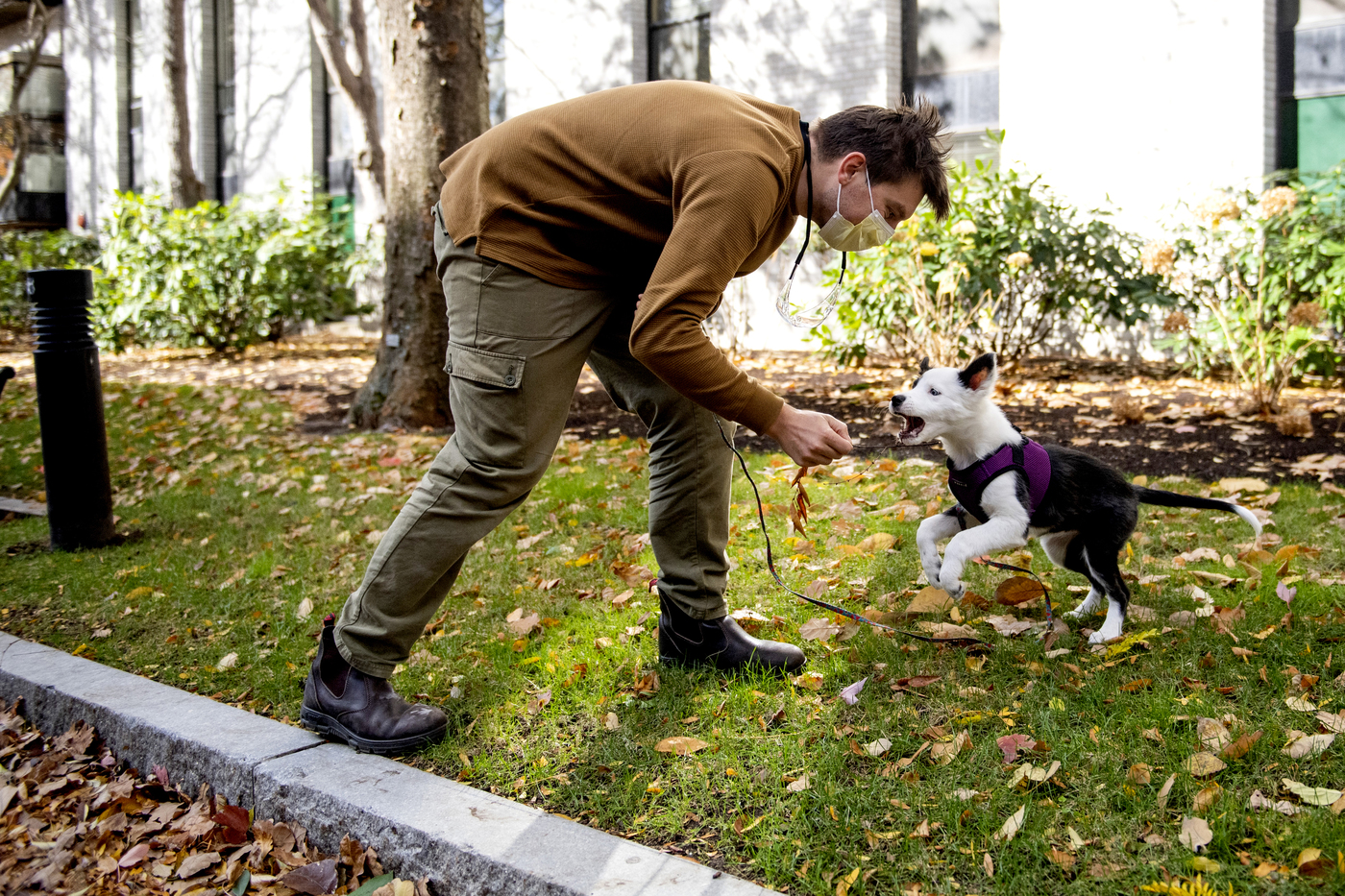
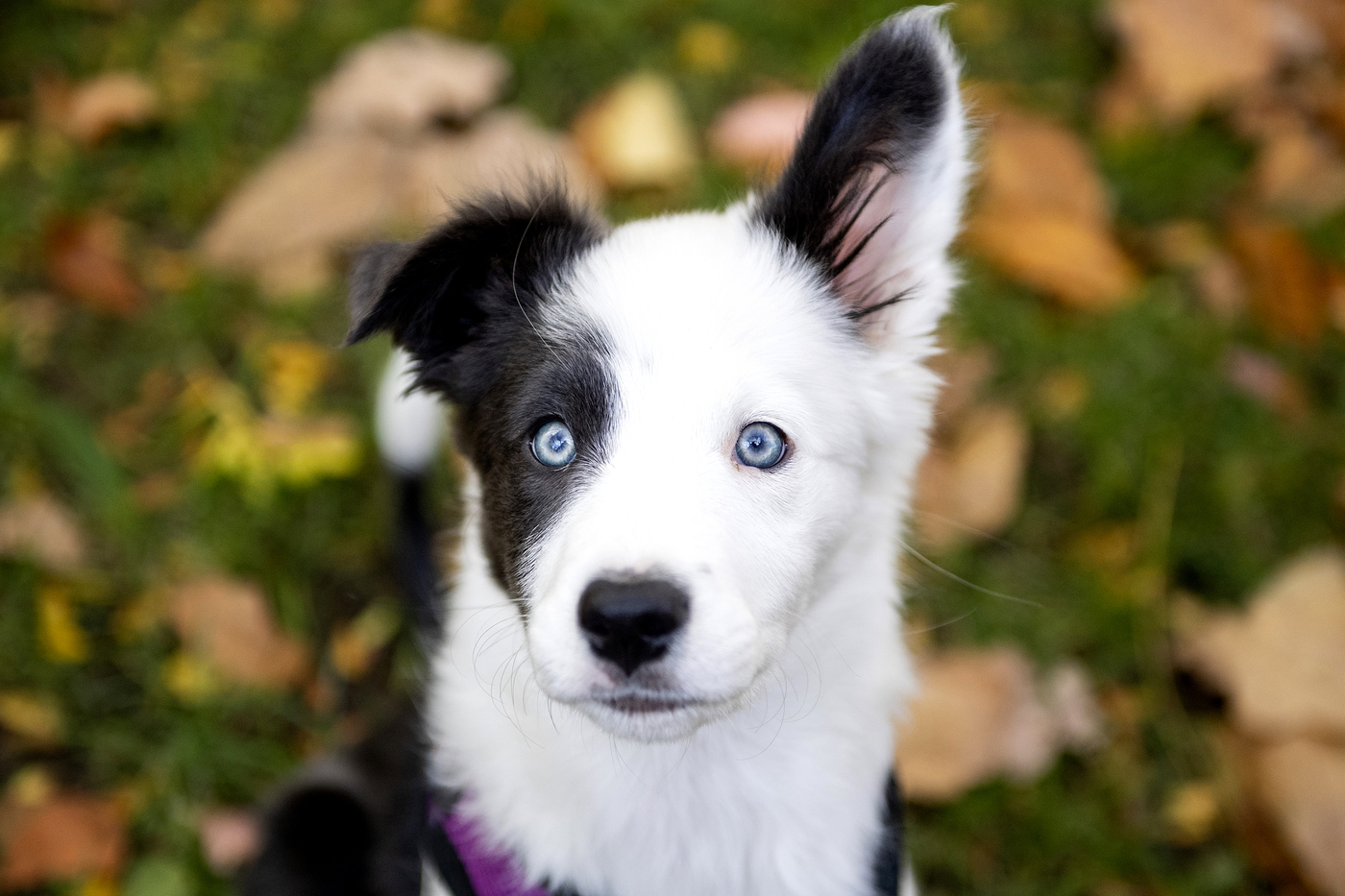
A post-pandemic reality will be a challenge for pets and owners alike. Izzy Bankowski, a fourth-year behavioral neuroscience major, hasn’t been able to take her new Cavapoo to any obedience training classes because they’ve been so full. She was seeking an emotional-support animal last year when the pandemic struck, and the puppy, named Kaia, was an important source of comfort during a frightening period riddled with uncertainty.
“Kaia has been my little sunshine during the pandemic,” says Bankowski. “She has kept me hopeful and calm, knowing that I wasn’t alone in this.”
Now she’s trying to prepare 11-month-old Kaia for a time when Bankowski will likely be working outside the house more often.
“It’s going to be pretty busy,” she says. “We’re hoping to try to start leaving the house, even if it’s just for five or ten minutes at a time.”
Bright said new owners should plan ahead to acclimate the dog to a post-pandemic schedule, even if Fido is well behaved.
“Everyone has to figure out what the dog is going to be doing all day when you’re not home. A lot of people have not really figured out what that schedule is yet, and that’s why our puppy classes and obedience classes are full,” says Bright.
Make sure someone is on hand to take the dog out a few times a day, says Bright. Enrichment toys that allow the new pet to hunt for treats are key to preventing boredom.
“Dogs are nothing but a nose on four legs,” says Bright. “If they’re bored, they’re probably not getting enough chances to hunt for things.”
Exercise also is key for dogs, says Bright, but new owners have to make sure their canine gets plenty of time to explore the outside on their own terms.
“A lot of owners live in the city and take the dog for a three-mile run around Boston Common. That’s great, but that kind of forced army march is just not as interesting as letting them follow their nose,” says Bright.
For media inquiries, please contact media@northeastern.edu.


